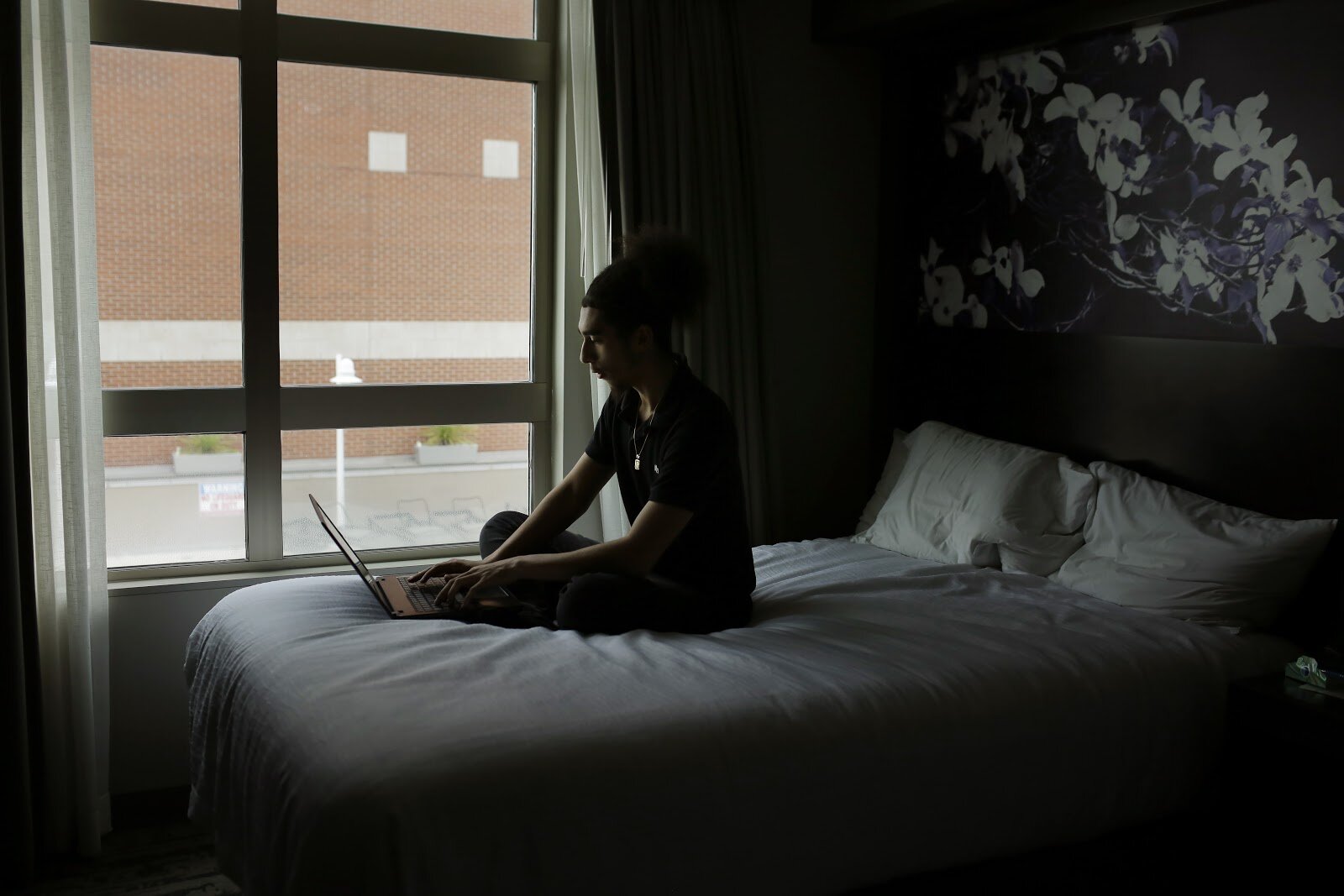Living in Your High School Bedroom
Students cope with coming back home
Oliveya Leon, a sophomore from Santa Barbara, Calif., never designed her room at any age in the past 19 years to host her full-time college experience.
Today, she sits down at her vanity which she has converted to a desk. The space is clean and clear of any non-school related item.
It’s a different world for college students. Similar to classes, the limbo between the safety of high school and the anxiety of adulthood has been relocated as well.
On March 9, the Office of the President sent an email to the student body announcing that all classes would be administered online until April 13.
It’s unclear how many students assumed when they left campus to return home that they’d be introduced to a new, yet old, lifestyle. What is clear is that the culturally coveted concept of “growing up” and “finding yourself” during college is not continuing business as usual, especially for those students who moved back into their childhood homes.
“I think one of the biggest challenges moving home has been learning to create a productive space out of a space I have considered a relaxation space,” said Leon. “For the past two years my room has been my chill space for holidays and breaks and it has been challenging making it into a work space.”
Senior Katie Kelley, who moved back home to Portland to shelter in place, feels the contrast between her senior year living off-campus and living under her parents’ roof again. “It is very different moving from a pretty independent lifestyle to back in the home and living style from high school,” Kelley said. "I feel very unorganized and half of my life and possessions are at school and the other half are at home”
For others, it’s not only a shift in lifestyle but a return to conflicts which SCU acted as an escape from.
Will Maddrey, a sophomore who returned home to Minnesota for the pandemic, has been re-immersed in family dynamics like his parent’s divorce.
“It's something I don't have to worry about at school, and I'm always looking forward to school for allowing me to put a lot of stress on the back burner with the knowledge that my parents are thousands of miles away,” said Maddrey.
While Maddrey has developed healthy coping mechanisms that benefit his mental health over his time at Santa Clara, he isn’t able to access them while living at home.
“At school, when something goes wrong I can go somewhere else, I can physically see other friends, I can go on bike rides in places that make me calm down and quantify things,” Maddrey said. “I can't do that here”
He’s not alone in having to recalibrate to family dynamics. One junior who wishes to remain anonymous discussed how he’s stopped certain habits like smoking marijuana to avoid conflict with his mother, citing it as a small loss for his independence in comparison with his larger mission of maintaining peace.
For others, it’s less about the home and more about the hometown. While Senior Annie Albers has plans to stay on the west coast after college, she’s currently waiting out the pandemic in her rural hometown in Nebraska.
“I had planned on never coming back here for longer than a week ever again in my whole life and now I have been here three months,” Albers said.
Junior Jessica Hou returned home to Camas, Wash. As a Chinese American living in a predominantly-white suburban town, Hou is worried about being a target of discrimination in the midst of COVID-19.
Moving home has revealed no shortage of challenges for these students, but some were still able to acknowledge the privileges they have in being able to move home and the ease that affords them during this time.
This is especially important for Albers, who lives with an autoimmune disorder, making her an at risk population for COVID-19. Living at home allows family members to go grocery shopping for her, a task which if put solely on her would be a threat to her life.
There’s no exact equation, but what Albers and other students trade for feelings of independence is the comfort of living with a supportive team to help them through this time.
Though Kelley was crushed to miss her graduation this year, a ceremony she had been looking forward to since the age of 18 to help welcome her into the real world, she was able to identify the silver linings of spending these months at home.
“I have had more time to reflect on where I am currently and where I want to go moving forward with my life and career,” said Kelley. “In a weird way, I am grateful to have this time right before entering the adult world because it has allowed me to reflect on parts of my journey that I haven't made time to reflect on in the past.”
Even if it’s alongside their stuffed animals and middle school trophies, students can continue to grow into the young adults they went to college to discover.
“I am growing at this time in the way that I want to grow,” Leon said. “At Santa Clara I was more focused on growing as a student and my growth was measured by how successful I felt I was or how productive I was being and less focused on how I was feeling in my skin.”
